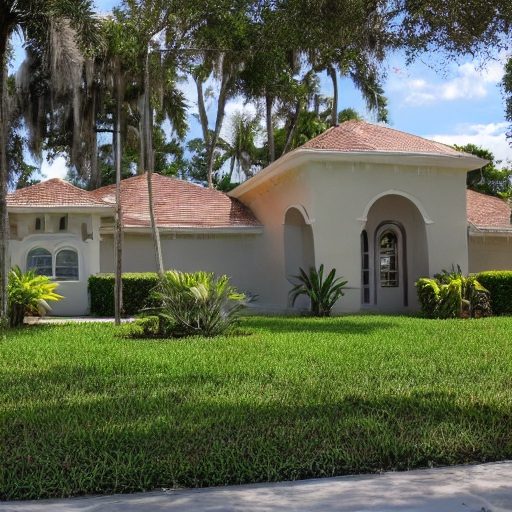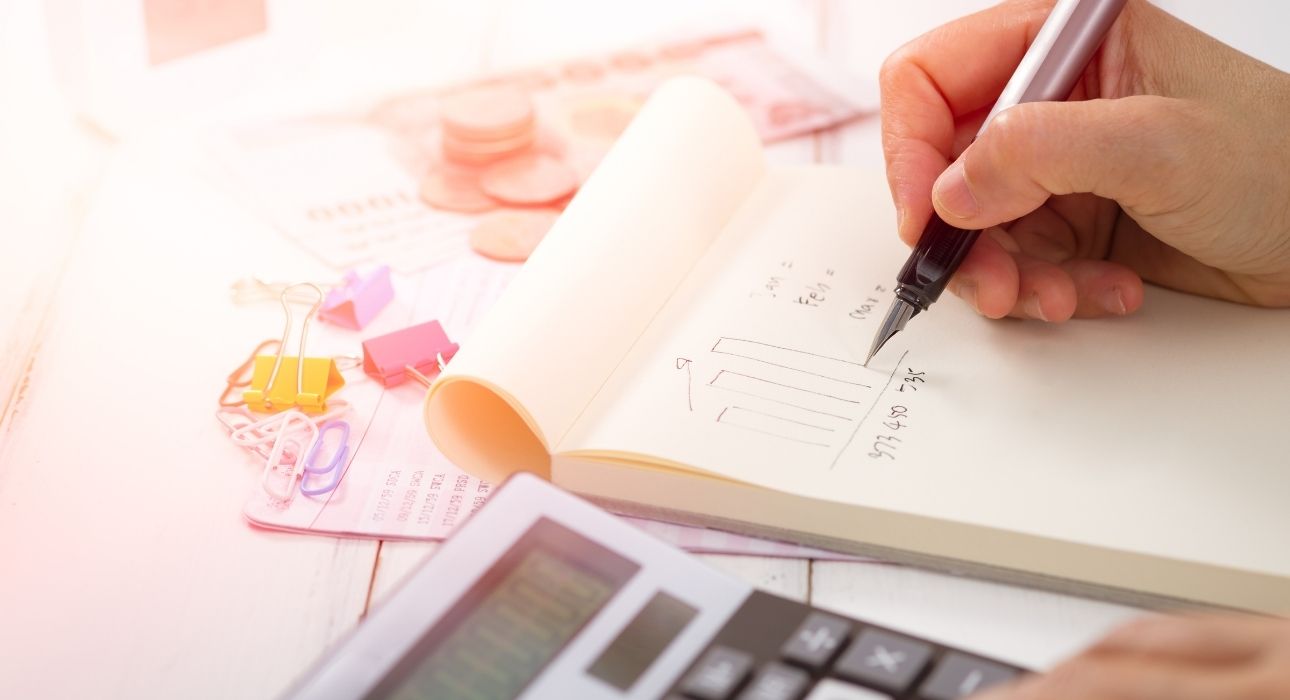
Get the Best Results with Richr: The Top Discount Real Estate Broker in Florida
Are you looking to buy or sell a property, but…
February 2, 2023
Buying a home is about more than just the down payment! This is the breakdown of the costs when owning or buying a home.
Table of Contents:
Cost of Living When Owning or Buying a Home
The True Cost of Living When Owning and Buying a Home
Home Insurance Average Cost Per Month
Plumbing and Electrical Home Maintenance
Heating and Air Conditioning Maintenance (HVAC)
Frequently Asked Questions (FAQ)
What are monthly expenses for owning a home?
What are 3 costs of owning a home?
Is it cheaper to rent or own a house?
How much should I budget for home maintenance?
How much does it cost to own a house per year?
What is one major advantage of having a home mortgage instead of renting a home?
What are the advantages of being a first time home buyer?
Is it better to rent or buy a house 2022?
In particular, low mortgage rates have sparked enthusiasm among young people who are tired of seeing their rent payments rise year after year and like the notion of having equity—a stake in their property.
It’s possible that owning a house might help you build a more stable financial future. When it comes to the financial implications of homeownership, first-time buyers may be a little startled.
In addition to the monthly mortgage payments, owning a house comes with many other expenses. The first three types of hidden costs can’t be avoided. Some of the others are intermittent and extremely unpredictable, contributing to heightened stress. Preparation is half the battle. Read on to understand the cost of living when owning or buying a home.
Homeowner’s insurance is an expected monthly cost of owning a home. Banks and mortgage companies are likely to need it before they grant you a loan, and the premiums will be included in your monthly mortgage payment. Escrow accounts typically deduct your homeowner’s insurance and property tax payments.
The average annual cost of homeowners insurance is $1,249, or $104.08 per month, according to a poll conducted by the National Association of Insurance Commissioners (NAIC) in 2021. Factors such as your location, property value, coverage levels, and discounts will influence your homeowners’ insurance quote.
As your home’s value increases, so will your insurance premiums, so keep this in mind while comparing quotes each year.
You don’t want to be caught off guard by anything your insurance doesn’t cover. Because “acts of God” aren’t often covered by homeowner’s insurance, you’ll need to get supplemental protection to guard against disasters like floods, hurricanes, and earthquakes. Regular homeowners’ policies seldom cover water damage caused by storms and other natural disasters.
This additional insurance can be pricey, especially if you live in a region prone to flooding. There will be a significant price difference based on your property’s proximity to the coast as of 2021. The average annual cost of flood insurance will be $708.
As a homeowner, you are responsible for paying your fair part of the costs incurred by the local government. The bank is not in charge of deciding the amount of property tax to be levied, but rather the city, township or county. It is not uncommon for ad valorem property tax payments, which are calculated based on the value of your home, to surpass $500 to $1,000 every month.
You’re effectively paying a one-time payment that will continue for the rest of your life when it comes to property taxes. Although you may not be able to control how much it will cost, there are steps you may take to reduce the amount of tax you must pay, just as there are with any other tax.
It can range from 1%-2.5% of your home’s assessed value.
When it comes to the electricity side of your home, arc faults, faulty wiring, and electrical shorts all contribute to electrical fires, which are responsible for a large number of home fires.
While having basic knoweldge of electiricy is great, you also also need to be aware of your limitations in order to keep your homes and families safe. If you’re dealing with a systemic problem or doing extensive remodeling, it’s best to call in the experts—trusted, qualified, and certified electricians.
On the plumbing side of the average cost of a house maintenance upkeep, it doesn’t matter where you live in the world if you have a clogged drain, and it’s not difficult to fix with some basic plumbing knowledge.
On the other hand, some older houses have more significant problems with the plumbing. Many of these homes have galvanized iron water pipes, which can become clogged with mineral deposits over time and reduce water pressure. It’s not possible to fix these pipes; they need to be replaced.
Check to see if your water is tainted by lead poisoning from your plumbing. Pipes in your house and those that link your home to the municipal sewer system might both be the source of a problem.
New ones will need to be installed when the current units wear out. In order to maintain your furnace and air conditioner working properly, you need to change the filters on a regular basis.
As a general rule, homeowners should have their HVAC systems inspected at least once every year. A service contract or maintenance agreement can reduce the cost of an annual inspection, providing semi-annual inspections and additional advantages such as cheaper component pricing and emergency visits.
You’ll need to spend money to maintain your landscaping, whether you do it yourself or pay a professional. The cost of lawnmowers, snowblowers, and leaf blowers may quickly add up if you have a large yard.
This is more than just a superficial issue. A thicket of leaves or overgrown plants may clog gutters, causing drainage, plumbing, and outdoor HVAC unit systems to malfunction, causing damage to roofs and windows. As a result, several homeowners’ associations require their members to keep up with the grass care on their individual homes.
Besides the expected home owner maintenance, landscape, and upkeep fees for owning a home, the average cost of owning a house will come from the following categories:
Three costs of owning a home could be from yearly maintenance, such as fixing up the gutters, your monthly mortgage bill, and the utilities you’ll need running that are part of the cost of house payments.
Initially, renting a house may seem cheaper rather than owning it because of the overall costs of buying a house, including the down payment and closing costs. However, over years to come, the cost of owning a home vs renting is significantly less due to the appreciation you’ll be building from becoming a homeowner. While you’ll have to save more to obtain ownership mortgage and a down payment, it’s better to pay off an asset you own than give rent to a landlord to pay off their cost of home ownership instead.
Homeownership comprises a variety of house costs in addition to the monthly mortgage payment, property taxes, and utilities. The numerous components of your home, on the other hand, will not survive forever. In contrast to a renter, you will not be able to call the landlord for repairs, which means you will need to prepare for breakdowns and replacements in advance with saving the average home maintenance costs.
Nevertheless, how can you determine how much money you should set aside for house expenses? The one percent rule of thumb is a smart place to begin when starting off. In order to cover repairs and replacements, one percent of the home’s purchase price should be set aside.
Nonetheless, it’s very possible that this generalization isn’t accurate for everyone. The amount of money you’ll need to set aside for repairs can vary depending on a number of factors, including the age and condition of your home.
The average cost of a home per year will vary depending on the purchase price, the size of the property, and its maintenance upkeep. With the 1% rule towards maintenance, you can add up these monthly expenses and multiply them by 12 to get a rough estimate on the list of bills to pay when owning a house:
There is more than one major advantage of having a home mortgage instead of renting a home, despite the expenses when buying a house. When you finally buy your first home, there are few joys in life that compare. If the conditions are right, you may find that owning a house has a number of advantages. There are several reasons to consider acquiring a home, including the following:
First-time homebuyers who meet certain conditions can take advantage of a range of incentives for fees when buying a house, including low- or no-down-payment loans, down payment assistance, subsidies, and other financial aid.
For first-time homebuyers, almost all of the nation’s major mortgage lenders provide customized programs that are tailored to their specific needs. If you want to get a loan from a government agency tied to housing aid, you must pick a lender that the organization has approved to be funded for the total cost of mortgage.
Rent increases will certainly outpace increases in house prices, as long as demand remains greater than supply. First-time homebuyers will continue to struggle due to escalating costs and a shortage of inventory, but it’s better than the alternative – renting. For these reasons, buying a home in 2022 is a great idea, and you can stop wasting money on your landlord’s homeowners’ rates.
According to the Federal Reserve’s 2020 Survey of Consumer Finances, if you own a home, you are worth significantly more money than if you do not.
Considering that homeowners have a net worth that is more than 40 times greater than that of renters, owning a house is a wise financial decision. Homeowners have an average net worth of $255,000, but renters have an average net worth of $6,300, according to the Census Bureau.
On the other hand, owning a house is not only about the land you live on (or, in the case of many people, the mortgage on which it is based).
Put another way; if you want to buy a property, you need to be financially responsible in your decision to manage the cost to buy a house successfully. A down payment must be saved, you must meet the requirements for a mortgage, and you must budget for expenditures connected with homeownership, such as taxes and insurance.
The ongoing costs of owning a home can return your investment tenfold if you keep up with maintenance and invest in some minor upgrades. When you purchase with Richr, you can expect the cost of buying a house to be even less. If you submit your offer through the digital platform, you can get up to 2% back on the cost of a house. The costs of buying a home are less of a burden when you buy with Richr.

If you want the Richr team to help you save thousands on your home just book a call.
 Book a call
Book a call